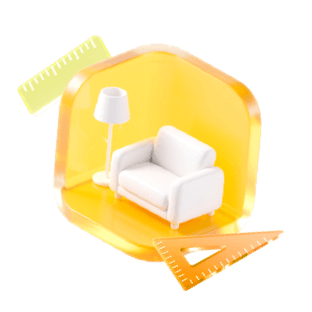Transforming a 2D floor plan into a 3D model is an engaging way to visualize your design concepts. Whether you're working on a compact studio or an expansive residence, this process allows you to comprehend how all elements will coexist. Here’s a comprehensive guide to making that transition seamlessly using tools like Homestyler.
Step 1: Assemble Your Tools
Before starting out, ensure you gather all essential tools. You will need:
Step 2: Design Your 2D Floor Plan
Begin by sketching your floor plan by hand. Here’s a quick rundown of how to proceed:
Step 3: Select a 3D Modeling Software
After finalizing your 2D floor plan, pick a 3D modeling software that suits your preferences. Noteworthy options include:
Step 4: Upload Your 2D Design
Most modeling software allows for the import of 2D layouts. Adhere to the specific instructions for your selected software to transition your plan into a 3D setting.
Step 5: Construct the 3D Model
This phase involves lifting your 2D plan into a full 3D representation. Utilize the features within the software to:
Step 6: Add Furniture and Decor
With your foundational structure complete, it’s time to embellish your area. Use the software’s furniture and decor library to:
Step 7: Experience in 3D
Most 3D modeling tools offer visualization capabilities. Make the most of this function to:
Success Tips
While developing your 3D model, keep these helpful suggestions in mind:
FAQ
Q: Which software is best for beginners to design 3D models? A: Homestyler and SketchUp are excellent choices for novices due to their intuitive interfaces.
Q: Is it possible to create a 3D model without any prior experience? A: Absolutely! Several software applications provide tutorials to guide you through the process, making it user-friendly even for newcomers.
Discover the advantages of using an innovative 2D Floor Planner.


















![Design [4]](https://hs-designs.homestyler.com/production/design/images/07c2de3a-88ec-4be8-8910-ff255b795bc2/1731419398293/7841697.jpg?x-oss-process=image/resize,w_502,m_mfit/format,webp)
































